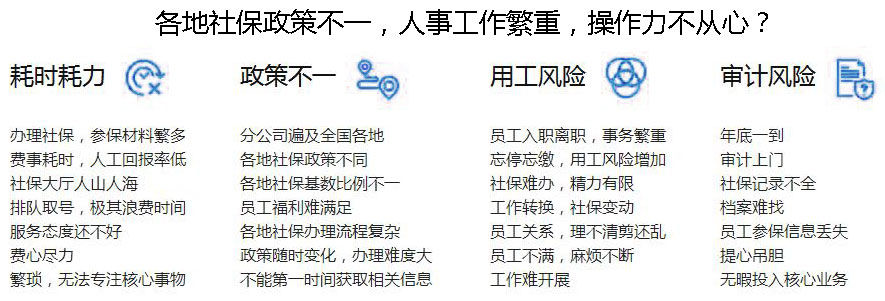- test
- Avia Masters in India Crash Game Dynamics and Betting Strategies
- Avia masters Casino igra z RTP 97%
- Going for The fresh Web based casinos in the Ca: Helpful tips to have 2025
- ten Finest Crypto Casino Betting, Playing United states Sites out of 2025
- Verbunden Kasino Provision ohne Einzahlung originell! 2025
- Jobb valódi pénzes online kaszinók az USA-ban Játssz és nyerj valódi pénzt
- Finest Web based casinos for your Area, Incentives & Earnings
The Ultimate Guide to Online Forex Trading Strategies and Tools
The Ultimate Guide to Online Forex Trading: Strategies and Tools
Online forex trading has taken the financial world by storm, providing individuals and institutions the opportunity to engage in the largest financial market in the world. With a daily trading volume exceeding $6 trillion, forex trading offers unparalleled liquidity and potential profit opportunities. Whether you’re a seasoned trader or just starting your journey, it’s important to grasp the fundamentals and strategies of forex trading. In this guide, we will explore various aspects of online forex trading, delve into effective trading strategies, highlight essential tools, and discuss reputable brokers, including online forex trading South Africa Brokers.
Understanding Forex Trading
Forex, or foreign exchange, involves the buying and selling of currencies in pairs. The market operates 24 hours a day, five days a week, and is decentralized, meaning that trades can occur between participants directly without a centralized exchange. The most common currency pairs include major ones like EUR/USD, GBP/USD, and USD/JPY. Traders speculate on the price movements of these pairs, aiming to profit from changes in exchange rates.
Essential Terminology
Before delving into trading strategies, it’s crucial to understand some basic forex terminologies:
- Pip: The smallest price move that a given exchange rate can make, usually equal to 0.0001 for most currency pairs.
- Leverage: A tool that allows traders to control larger positions than they could with their own capital, amplifying both potential profits and losses.
- Spread: The difference between the bid and ask price of a currency pair, which is how brokers make money.
- Margin: The amount required to open and maintain a leveraged position.
- Lot: A standardized unit of measurement for a trade. A standard lot is 100,000 units, a mini lot is 10,000 units, and a micro lot is 1,000 units.
Choosing a Forex Broker
Choosing the right forex broker is essential for your trading success. A reputable broker offers competitive spreads, fast execution, and a user-friendly trading platform. Additionally, ensure that the broker is well-regulated by a recognized authority (such as the FCA in the UK or the NFA in the US). When considering brokers, also look at their customer support, available trading tools, and educational resources.
Trading Strategies
Several strategies can be employed in forex trading, and the choice largely depends on individual trading styles. Here are a few popular strategies:
1. Scalping
Scalping involves making numerous trades throughout the day to profit from small price movements. Scalpers typically hold positions for just a few seconds to minutes, relying on high liquidity to execute their trades quickly.
2. Day Trading
Day trading involves opening and closing positions within the same trading day. Day traders aim to capitalize on intraday price movements, avoiding overnight risk. This strategy requires close monitoring of market trends and can be facilitated by technical analysis.
3. Swing Trading
Swing trading is designed for traders who prefer to hold positions for several days or weeks. Swing traders look to capture “swings” in the market, relying on a combination of technical and fundamental analysis to predict market movements.
4. Position Trading
This strategy involves holding positions for an extended period, from weeks to months. Position traders focus on long-term trends and might use fundamental analysis to determine their entry and exit points.
Utilizing Technical and Fundamental Analysis
Successful forex trading often relies on a thorough analysis of the market. Technical analysis involves studying price charts and using indicators to forecast future movements. Some commonly used indicators include:
- Moving Averages: These smooth out price data to identify trends over specific periods.
- Relative Strength Index (RSI): A momentum oscillator that measures the speed and change of price movements.
- Bollinger Bands: A volatility indicator that comprises a moving average and two standard deviations.
- MACD: The Moving Average Convergence Divergence is a trend-following momentum indicator that shows the relationship between two moving averages.
On the other hand, fundamental analysis evaluates economic indicators, such as interest rates, GDP, employment data, and geopolitical events that affect currency values.
Risk Management
Effective risk management is crucial in forex trading to protect your capital. Here are some key strategies:
- Use Stop-Loss Orders: A stop-loss order automatically closes a position at a predetermined price to limit losses.
- Define Risk Per Trade: Determine the percentage of your capital you are willing to risk on a single trade, usually a maximum of 1-2%.
- Diversification: Do not put all your capital in a single currency pair. Diversifying your trades across different pairs can reduce risk.
- Monitor Market Conditions: Be aware of global economic events that can impact the forex market.
Conclusion
Online forex trading offers immense opportunities, but it also comes with its challenges and risks. Understanding the basics, utilizing effective strategies, and prioritizing risk management are essential for success in this dynamic market. As you embark on your trading journey, consider working with reputable brokers, such as those found in South Africa Brokers, who provide valuable resources to support your trading experience. Remember, continuous education and practice are key to becoming a successful forex trader.

常见社保问题:
Q1:社保代理合法吗?
A1:合法。
相关法律:《劳动保障事务代理暂行办法》第二条规定“本暂行办法所称的劳动保障事务代理,是指劳动保障事务代理经办机构,根据协议,接受用人单位或劳动者个人的委托,在一定期限内为委托方代管劳动者个人档案、代办劳动人事、社会保险等劳动保障事务的行为”
A2:社保代理收费标准为19.8元/月起,代理办理社保相应服务,主要有:
1.工伤认定、评级、报销手续;
2.养老退休手续;
3.生育津贴、产前检查费报销、申领手续;
4.参保人员的医疗费报销;
5.失业保险金领取手续
6..……
A3:养老保险需要交满15年。养老金领取按当地社保领取政策为准。
A4:医保具体连续缴纳时限,各地社保政策有不同的规定,成都规定要连续缴纳12个月。医保断缴后即暂停享受医保待遇,欠费3个月以内补缴的,不算断缴,可连续享受社保待遇,欠费4个月以上的视为中断。
A5:生育保险要连续交满12个月,才能享受生育待遇。生育保险具体报销标准应看各地社保政策规定。

